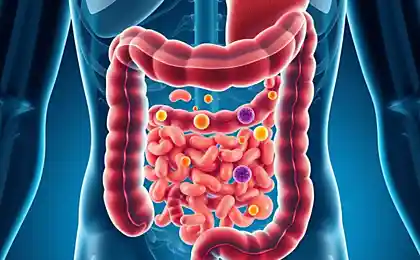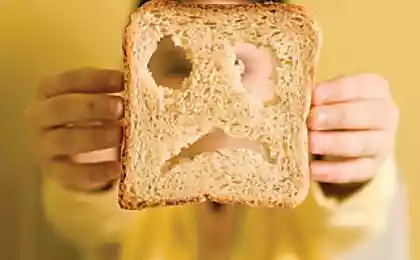803
Diet affecting autism: what we have and gives a chance to succeed
Autism is one of the most controversial topics of modern medical discourse, and professional and journalistic.
The fact that there is absolutely certain knowledge about the causes of autism – there are only more or less reasonable hypothesis. There is a relative agreement of physicians that autism is a multifactorial disorder and in different individual cases, the reasons it may not be the same.
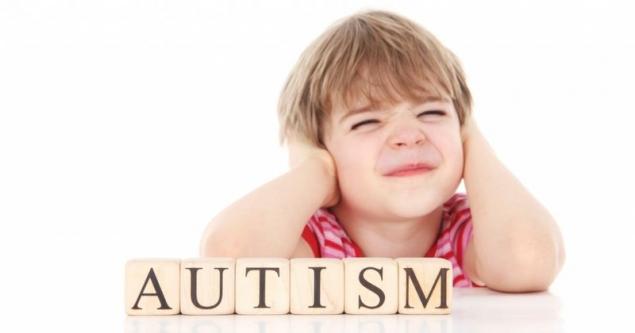
An increasing number of scientists and doctors engaged in the identification and counting of the phenotypes of autistic people having similar biological markers of the disease. However, the idea of postabortal (typical of autism, abnormalities of various physiological indicators of the condition of the body) seems to be a number of experts, especially on the psychological end of the General range of experts, discussion.
The lack of accurate knowledge about the causes of disease leads to the fact that most of the therapies used for the correction of autism has not in most countries the status of scientifically based and officially recommended, with the exception of applied behavioral analysis (Applied Behaviour Analysis, ABA). This does not prevent the fact that in our country and abroad quite often, if not, a standard intervention is the use of antipsychotic drugs for the relief of certain symptoms of autism.
In the opinion of the specialists and the parents of the activists who advocated for autism special diets, just drug therapy is a highly controversial treatment for autism due to the fact that does not lead to recovery, while having quite serious side effects.
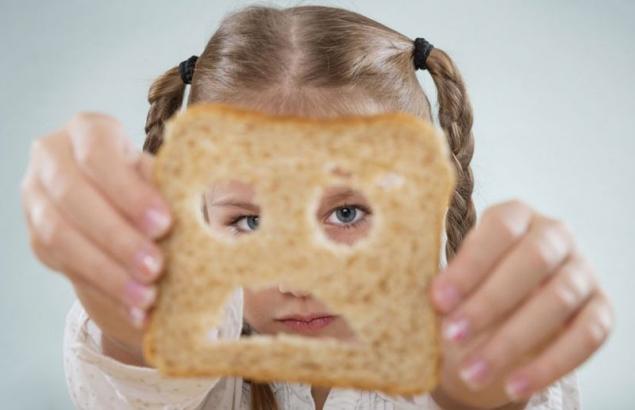
Diet seems to be a perfectly reasonable choice, as the therapy is relatively safe and feasible in home conditions. In the absence of a positive effect after prolonged use (experts recommend a trial period of 6-8 months) it is possible to refuse, knowing that, at least, no harm to health of the child diet is not caused, which is not true of the popular pharmaceutical drugs.
Meanwhile, in the information field there is a lot of information that inspire serious doubts as to the usefulness of the use of special diets in autism. For example, an article about a recent study on the website of the us charity Autism Speaks, which is called "Scientific research: gluten-free/baskasina diet does not improve autism symptoms" (Study: Gluten/casein-free diet does not improve autism symptoms).
A few words about what constitutes a gluten-free/baskasina diet. A system of power that excludes products containing two proteins, gluten and casein, that is, cakes and pasta made from wheat and rye flour, most of the cereals (except buckwheat, rice, millet and quinoa), as well as milk and dairy products.
No gluten, no casein does not represent an exceptional value for the body, and other nutrients, vitamins and minerals contained in cereals and milk, easy to obtain, except for calcium. Calcium can be supplemented by taking it as a Supplement, with the help of a nutritionist calculating the dose and observing certain rules.
A huge number of parents of autistic children believe that this diet has benefited their child improved the condition of the digestive tract (and gastrointestinal tract are a very common contributing factor in autism), reduced hyperactivity and emotional lability, and in some cases aggressiveness, increased the contact of the child and the ability to concentrate.
About how this diet can act on the body of the autistic, will be discussed later, but for now back to the latest study.
First of all, pay attention to the following: the findings of the research is not as categorical as it can be understood from the title of the article. The authors in the conclusion suggests that the data obtained should be interpreted with caution, and if the results do not give grounds to recommend the diet to everyone, who is autistic, it does not allow to conclude about its futility. Why?
First of all, because of the very limited sample. The study involved a total of 14 children aged 3-5 years, about half of which was on a diet – that is, it is only about 6-8 children.
In addition, the total duration of the experiment was less than 6 months, while, according to doctors, the supporters of a diet, the first positive results can be observed not earlier than six months of strict exclusion from the power structure of the casein and especially gluten, which is rather slowly excreted from the body.
Study leader Dr. Susan Hyman (Medical center of the University of Rochester, USA) in his interview says that the need for more extensive research in order to make final conclusions regarding the usefulness of or the futility of gluten-free/bestcasinos diet in autism.
But what is surprising. Since 1990-ies, and our days were conducted dozens of studies with some differences in design but all on very small samples, and in conclusion, almost each of the authors write about the need for a large-scale, double-blind, placebo-controlled studies. However, such a study has not been conducted, but instead another scientific work, in which diet is observed less than 10 subjects in less than 6 months!
(Note, while that in parenthesis, that few studies demonstrating the positive effect of a gluten-free/bestcasinos diet for autism, different from the others in that the subjects adhered to this system of power during the year in one case and two years in another).
It should be noted, however, that the group Susan Hyman made in the study of one very important thing: the researchers conducted analyses of potential participants and weed out those who have intolerance to gluten or casein, having as its object the "pure" autism.
Meanwhile, pure autism is not so common in real life, and most autistic children have these or other health problems. For setting up the experiment the excretion for the study of patients with celiac and casein intolerance was absolutely the right step, but you must understand that the proportion of children among people with autism can be far from small.
One of the world's leading experts on celiac disease (celiac enteropathy) Dr. Alessio Fasano found that sensitively to both proteins is found more often in autistic children than in healthy children, titers of antibodies to gluten and casein, they have significantly higher and the permeability of the intestinal wall (which is the result of damage caused by these proteins) is found in 25.6% of autistic vs. 2.3% neurotypical peers. It turns out that, at least for a quarter of all autistic people have good reason to stick to this diet, and this is a big subgroup of children with the disorder.
But sensitivity to proteins on the immune level and damage to the digestive tract is only one mechanism that explains the negative impact of gluten and casein on the condition of children with autism. There is another, who adopted the hypothesis of Norwegian scientists, the ones that have to output a better and better development of children, kept in the course of a year gluten-free/betcasino diet compared to the control group.
For their single-blind, placebo-controlled study they took 20 autistic children, whose urine was increased content of peptide, derivatives of gluten and casein have opioid effect. Presumably, this effect on the brain of the autistic child hinders the development of social skills, communication and imagination.
The results confirm this hypothesis, however, a limited sample does not allow generalizations. It is unclear what proportion of autistic children suffer data exchange violation, not allowing the body to fully break down casein and gluten and causing a negative impact of intermediate cleavage products of the child's brain.
There is another hypothetical mechanism of influence of components of diet on the condition of autistic child, formulated by the researcher-physician William Wilson (Hospital Beverly, mA, USA). Dr. Wilson believes that certain components of the diet are unlikely to be the main triggers of autism, but may well be factors that aggravate his symptoms (that is, the secondary triggers of autism) or a cause independent of the disease, symptoms of which overlap with symptoms of autism and make it visible manifestations stronger.
Based on our many years of clinical experience Dr. Wilson has identified a group of patients with similar physical and mental symptoms that have been overcome by excluding from the diet the number of products containing sugar and starches, that is, carbohydrates with a high glycemic index (particularly of cereals) and excess of omega-6 fatty acids contained in vegetable oils.
This syndrome Wilson called CARB – Carbohydrate Associated Reversible Brain syndrome, which means the Carbohydrate-associated reversible brain syndrome. He finds that its prevalence is growing, and this is not surprising, as the modern diet is largely based on the products of industrial processing and fast food containing excess amounts of sugars, starch and vegetable fats.
Wilson identifies 22 diagnostic symptom of CARB syndrome, part of which coincides with the symptoms of autism (e.g., anxiety, low concentration, low self control, mood swings, insomnia, sensory impairment, problems with the gastrointestinal tract).
But this symptom is a strong craving for sweets and starchy foods (flour, potatoes, cereal porridges) says nothing about autism, but indicates, in the opinion of the doctor, CARB syndrome, and if this craving is the autistic, it is very likely that he suffers from two diseases that affect the brain. If you do not treat the patient with autism from the CARB, its metabolic status will constantly deteriorate and have a negative impact on brain functions, reducing its ability to adapt.
Patients with this syndrome, Dr Wilson recommends to the now popular Paleo diet, in the world of autism better known under the name of the Specific carbohydrate diet (SCD, Specific Carbohydrate Diet). In fact it is besprizornaya diet that eliminates complex sugars and starches.
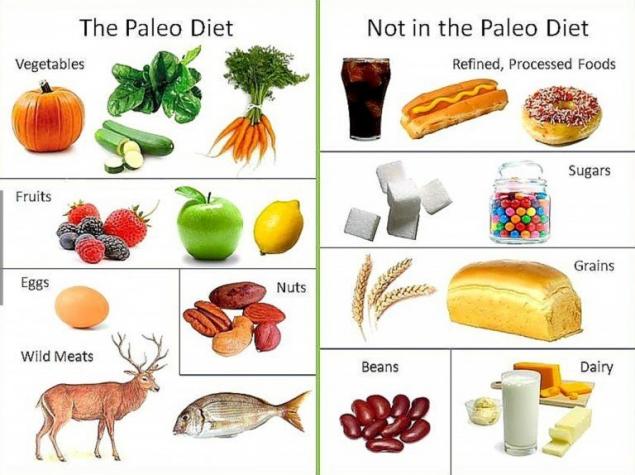
It partly overlaps with the gluten-free/bestcasinos as fall under the ban of all products of cereals and fresh milk containing polysaccharide lactose. In this case, allowed cheese and yogurt, in which lactose is destroyed the appropriate dose of beneficial bacteria, aged for 24 hours at a temperature of 40 degrees. Often, parents of children who showed positive dynamics on a gluten-free/bestcasinos diet, noted improvements in the condition of children on the diet besprichinnoe.
There is another aspect of action besprichinnoe and gluten-free diet. Children with autism often nabludaetsya seizure activity in the brain, they may suffer from subclinical (implicit), or even clinical seizures, and the removal of gluten and polysaccharides may decrease their seizure activity.
So, in a nutshell, we have some experimental data and numerous reports of doctors and parents of patients, suggesting that there are subgroups of children with autism, for which the introduction BGBC or besprichinnoe diet will help to significantly improve both the physical condition and symptoms of autism.
It is unknown exactly what proportion of these patients in the total number of people with autism, little is known about the mechanisms behind the effect of food on symptoms. No large-scale clinical studies with the division of subjects into subgroups that share similar biomarkers that would allow to obtain valid data and to generalize them.
However, based on the results of several studies, experts identify those areas where improvements had taken place thanks to the diet:
For most experienced parents there is no question here.
First, the diet is something that does not require constant intervention of the doctor is what may help and can't hurt with proper introduction and maintenance (recommendations can be found in the online communities focused on autism, and on the websites of reputable organizations such as the American Institute of autism).
Secondly, the diet helps – as paradoxical as it sounds – to expand the diet of a child with autism. Typically, these children will limit themselves to three or four favorite dishes or products, but with the introduction of the diet, they gradually begin to try and have something that refused to touch.
Third, the difficult task of selecting products gradually stops being challenging and becomes routine. Gradually all the costs of switching to a diet cease to be cost.
And finally, even if on a gluten-free/bestcasinos or besprichinnoe diet you will not see apparent progress in overcoming the symptoms of autism, nutrition without excess no one useful gluten, sugars, starches and TRANS-fats, improve the physical condition of your child, as does any ordered system of power, not completely excluding a particular group of nutrients (like veganism).
And the most important thing. It would be possible to wait for the final findings of scientists, but the help our children need here and now. Why not try what we are, is not threatened by complications and gives you the chance to succeed. published
Author: Marina Solodovnikova
P. S. And remember, just changing your mind — together we change the world! © econet
Source: //www.miloserdie.ru/article/diety-kotorye-vliyayut-na-autizm-to-chto-nam-dostupno-i-daet-shans-na-uspeh/
The fact that there is absolutely certain knowledge about the causes of autism – there are only more or less reasonable hypothesis. There is a relative agreement of physicians that autism is a multifactorial disorder and in different individual cases, the reasons it may not be the same.

An increasing number of scientists and doctors engaged in the identification and counting of the phenotypes of autistic people having similar biological markers of the disease. However, the idea of postabortal (typical of autism, abnormalities of various physiological indicators of the condition of the body) seems to be a number of experts, especially on the psychological end of the General range of experts, discussion.
The lack of accurate knowledge about the causes of disease leads to the fact that most of the therapies used for the correction of autism has not in most countries the status of scientifically based and officially recommended, with the exception of applied behavioral analysis (Applied Behaviour Analysis, ABA). This does not prevent the fact that in our country and abroad quite often, if not, a standard intervention is the use of antipsychotic drugs for the relief of certain symptoms of autism.
In the opinion of the specialists and the parents of the activists who advocated for autism special diets, just drug therapy is a highly controversial treatment for autism due to the fact that does not lead to recovery, while having quite serious side effects.

Diet seems to be a perfectly reasonable choice, as the therapy is relatively safe and feasible in home conditions. In the absence of a positive effect after prolonged use (experts recommend a trial period of 6-8 months) it is possible to refuse, knowing that, at least, no harm to health of the child diet is not caused, which is not true of the popular pharmaceutical drugs.
Meanwhile, in the information field there is a lot of information that inspire serious doubts as to the usefulness of the use of special diets in autism. For example, an article about a recent study on the website of the us charity Autism Speaks, which is called "Scientific research: gluten-free/baskasina diet does not improve autism symptoms" (Study: Gluten/casein-free diet does not improve autism symptoms).
A few words about what constitutes a gluten-free/baskasina diet. A system of power that excludes products containing two proteins, gluten and casein, that is, cakes and pasta made from wheat and rye flour, most of the cereals (except buckwheat, rice, millet and quinoa), as well as milk and dairy products.
No gluten, no casein does not represent an exceptional value for the body, and other nutrients, vitamins and minerals contained in cereals and milk, easy to obtain, except for calcium. Calcium can be supplemented by taking it as a Supplement, with the help of a nutritionist calculating the dose and observing certain rules.
A huge number of parents of autistic children believe that this diet has benefited their child improved the condition of the digestive tract (and gastrointestinal tract are a very common contributing factor in autism), reduced hyperactivity and emotional lability, and in some cases aggressiveness, increased the contact of the child and the ability to concentrate.
About how this diet can act on the body of the autistic, will be discussed later, but for now back to the latest study.
First of all, pay attention to the following: the findings of the research is not as categorical as it can be understood from the title of the article. The authors in the conclusion suggests that the data obtained should be interpreted with caution, and if the results do not give grounds to recommend the diet to everyone, who is autistic, it does not allow to conclude about its futility. Why?
First of all, because of the very limited sample. The study involved a total of 14 children aged 3-5 years, about half of which was on a diet – that is, it is only about 6-8 children.
In addition, the total duration of the experiment was less than 6 months, while, according to doctors, the supporters of a diet, the first positive results can be observed not earlier than six months of strict exclusion from the power structure of the casein and especially gluten, which is rather slowly excreted from the body.
Study leader Dr. Susan Hyman (Medical center of the University of Rochester, USA) in his interview says that the need for more extensive research in order to make final conclusions regarding the usefulness of or the futility of gluten-free/bestcasinos diet in autism.
But what is surprising. Since 1990-ies, and our days were conducted dozens of studies with some differences in design but all on very small samples, and in conclusion, almost each of the authors write about the need for a large-scale, double-blind, placebo-controlled studies. However, such a study has not been conducted, but instead another scientific work, in which diet is observed less than 10 subjects in less than 6 months!
(Note, while that in parenthesis, that few studies demonstrating the positive effect of a gluten-free/bestcasinos diet for autism, different from the others in that the subjects adhered to this system of power during the year in one case and two years in another).
It should be noted, however, that the group Susan Hyman made in the study of one very important thing: the researchers conducted analyses of potential participants and weed out those who have intolerance to gluten or casein, having as its object the "pure" autism.
Meanwhile, pure autism is not so common in real life, and most autistic children have these or other health problems. For setting up the experiment the excretion for the study of patients with celiac and casein intolerance was absolutely the right step, but you must understand that the proportion of children among people with autism can be far from small.
One of the world's leading experts on celiac disease (celiac enteropathy) Dr. Alessio Fasano found that sensitively to both proteins is found more often in autistic children than in healthy children, titers of antibodies to gluten and casein, they have significantly higher and the permeability of the intestinal wall (which is the result of damage caused by these proteins) is found in 25.6% of autistic vs. 2.3% neurotypical peers. It turns out that, at least for a quarter of all autistic people have good reason to stick to this diet, and this is a big subgroup of children with the disorder.
But sensitivity to proteins on the immune level and damage to the digestive tract is only one mechanism that explains the negative impact of gluten and casein on the condition of children with autism. There is another, who adopted the hypothesis of Norwegian scientists, the ones that have to output a better and better development of children, kept in the course of a year gluten-free/betcasino diet compared to the control group.
For their single-blind, placebo-controlled study they took 20 autistic children, whose urine was increased content of peptide, derivatives of gluten and casein have opioid effect. Presumably, this effect on the brain of the autistic child hinders the development of social skills, communication and imagination.
The results confirm this hypothesis, however, a limited sample does not allow generalizations. It is unclear what proportion of autistic children suffer data exchange violation, not allowing the body to fully break down casein and gluten and causing a negative impact of intermediate cleavage products of the child's brain.
There is another hypothetical mechanism of influence of components of diet on the condition of autistic child, formulated by the researcher-physician William Wilson (Hospital Beverly, mA, USA). Dr. Wilson believes that certain components of the diet are unlikely to be the main triggers of autism, but may well be factors that aggravate his symptoms (that is, the secondary triggers of autism) or a cause independent of the disease, symptoms of which overlap with symptoms of autism and make it visible manifestations stronger.
Based on our many years of clinical experience Dr. Wilson has identified a group of patients with similar physical and mental symptoms that have been overcome by excluding from the diet the number of products containing sugar and starches, that is, carbohydrates with a high glycemic index (particularly of cereals) and excess of omega-6 fatty acids contained in vegetable oils.
This syndrome Wilson called CARB – Carbohydrate Associated Reversible Brain syndrome, which means the Carbohydrate-associated reversible brain syndrome. He finds that its prevalence is growing, and this is not surprising, as the modern diet is largely based on the products of industrial processing and fast food containing excess amounts of sugars, starch and vegetable fats.
Wilson identifies 22 diagnostic symptom of CARB syndrome, part of which coincides with the symptoms of autism (e.g., anxiety, low concentration, low self control, mood swings, insomnia, sensory impairment, problems with the gastrointestinal tract).
But this symptom is a strong craving for sweets and starchy foods (flour, potatoes, cereal porridges) says nothing about autism, but indicates, in the opinion of the doctor, CARB syndrome, and if this craving is the autistic, it is very likely that he suffers from two diseases that affect the brain. If you do not treat the patient with autism from the CARB, its metabolic status will constantly deteriorate and have a negative impact on brain functions, reducing its ability to adapt.
Patients with this syndrome, Dr Wilson recommends to the now popular Paleo diet, in the world of autism better known under the name of the Specific carbohydrate diet (SCD, Specific Carbohydrate Diet). In fact it is besprizornaya diet that eliminates complex sugars and starches.

It partly overlaps with the gluten-free/bestcasinos as fall under the ban of all products of cereals and fresh milk containing polysaccharide lactose. In this case, allowed cheese and yogurt, in which lactose is destroyed the appropriate dose of beneficial bacteria, aged for 24 hours at a temperature of 40 degrees. Often, parents of children who showed positive dynamics on a gluten-free/bestcasinos diet, noted improvements in the condition of children on the diet besprichinnoe.
There is another aspect of action besprichinnoe and gluten-free diet. Children with autism often nabludaetsya seizure activity in the brain, they may suffer from subclinical (implicit), or even clinical seizures, and the removal of gluten and polysaccharides may decrease their seizure activity.
So, in a nutshell, we have some experimental data and numerous reports of doctors and parents of patients, suggesting that there are subgroups of children with autism, for which the introduction BGBC or besprichinnoe diet will help to significantly improve both the physical condition and symptoms of autism.
It is unknown exactly what proportion of these patients in the total number of people with autism, little is known about the mechanisms behind the effect of food on symptoms. No large-scale clinical studies with the division of subjects into subgroups that share similar biomarkers that would allow to obtain valid data and to generalize them.
However, based on the results of several studies, experts identify those areas where improvements had taken place thanks to the diet:
- Communication and language skills;
- Concentration;
- Social interaction and integration;
- The injurious, pain perception;
- Stereotypes, repetitions in everyday behavior;
- Coordination of movement;
- Hyperactivity.
For most experienced parents there is no question here.
First, the diet is something that does not require constant intervention of the doctor is what may help and can't hurt with proper introduction and maintenance (recommendations can be found in the online communities focused on autism, and on the websites of reputable organizations such as the American Institute of autism).
Secondly, the diet helps – as paradoxical as it sounds – to expand the diet of a child with autism. Typically, these children will limit themselves to three or four favorite dishes or products, but with the introduction of the diet, they gradually begin to try and have something that refused to touch.
Third, the difficult task of selecting products gradually stops being challenging and becomes routine. Gradually all the costs of switching to a diet cease to be cost.
And finally, even if on a gluten-free/bestcasinos or besprichinnoe diet you will not see apparent progress in overcoming the symptoms of autism, nutrition without excess no one useful gluten, sugars, starches and TRANS-fats, improve the physical condition of your child, as does any ordered system of power, not completely excluding a particular group of nutrients (like veganism).
And the most important thing. It would be possible to wait for the final findings of scientists, but the help our children need here and now. Why not try what we are, is not threatened by complications and gives you the chance to succeed. published
Author: Marina Solodovnikova
P. S. And remember, just changing your mind — together we change the world! © econet
Source: //www.miloserdie.ru/article/diety-kotorye-vliyayut-na-autizm-to-chto-nam-dostupno-i-daet-shans-na-uspeh/










